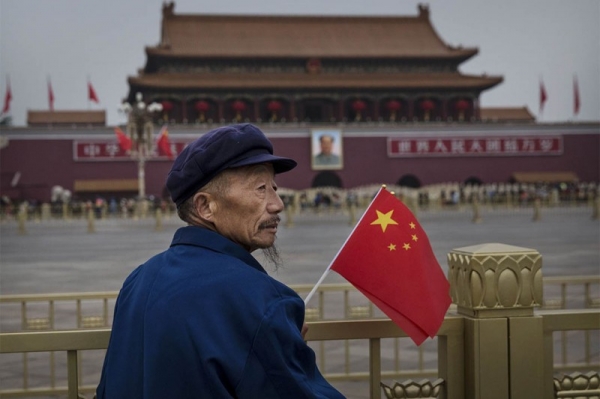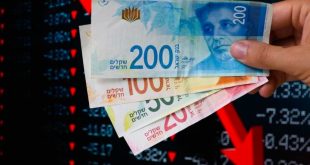
The Chinese financial authorities are struggling to strengthen the role of the special drawing rights of the IMF and the yuan in the global monetary system. But in practice, Beijing does nothing to undermine the hegemony of the dollar, as it would be contrary to the economic interests of China itself
In April of this year, Zhou Xiaochuan, administrator of the people’s Bank of China (PBOC), has alarmed many with his performance in the IMF. “Since April,” he announced, China publishes data on foreign exchange reserves denominated not only in dollars but in SDRs. We will also consider the possibility of issuing bonds denominated in SDRs, in the domestic market. For many years the Chinese Central Bank published statistics of reserves only in dollars and yuan, and now leads her in terms of special drawing rights (Special Drawing Rights, SDRs) of the IMF. SDRs – a basket of currencies which includes the dollar, Euro, yen, pound, and October and the yuan. The decision to publish data on foreign exchange reserves in SDRs, according to people’s Bank, “will help to strengthen the role of SDRs as units of account”.
Many specialists from the Central Bank is perplexed. Soon, the newspaper South China Morning Post saw in the decision the NSC confirmation of the new Chinese strategic plan “to end dollar hegemony and shape a new world financial order”. Analyst David Marsh in the edition of MarketWatch made a softer assumption: “the Second largest economy in the world to adopt a multi-currency reserve system the global financial order.”
But experts speaking about the upcoming ascent of the yuan and the decline of the dollar seems to correctly understand the role of reserve currencies in the global balance of payments. Whatever Beijing wanted to do, China’s economic policy since 1990-ies, on the contrary, strengthens the role of the dollar as a reserve currency. The weakening of the dollar slowed down the economic growth of China and would be significantly hampered the already difficult restructuring of the Chinese economy and its reorientation from the investment growth on domestic consumption.
The dubious pleasure of hegemony
Many complain that the hegemony of the dollar gives Washington unjustified privileges. In fact, the US government very few wins and quite a lot to pay for something that the dollar remained the reserve currency. These costs are further increased after the British referendum on leaving the EU, when frightened investors rushed to transfer their funds into dollars.
Before discussing costs, let’s talk about its expected benefits. Most often discuss four such benefits.
Reducing the cost of borrowing for the U.S. government. In the report McKinsey Global Institute 2009 States that “the United States can raise capital cheaper due to large-scale purchase of U.S. Treasury securities by foreign governments.” Sounds reasonable: demand for government bonds should lead to an increase in their value. However, such purchases increase and dollar-denominated debt. Otherwise, we would have to conclude that the increase in the trade deficit country automatically reduces the price of borrowing for the country, which is absurd.
Americans consume more than they can afford. According to this interpretation, as erroneously argues, for example, the Federal reserve Bank of St. Louis, “the United States became a debtor of the world because of the constant deficit on current account deficits”. Yale University Professor Stephen roach writes: “America is living beyond its means for several decades and funded the biggest consumer boom in history due to the excess savings of other countries.”
But in fact the opposite is true. Yes, developing countries are generally not able to save enough to meet their investment needs, which leads to a deficit in their balance of payments. So it was in the USA in the XIX century. Then the deficit was financed mainly Britain, which made up for the lack of investment and consumer goods in the U.S. due to the surplus of its own trade balance. But the amount of investment in the United States no longer a restricted amount of savings. America retains the current account deficit only because the country is constantly receiving foreign money fueling the dollar.
Any country with a stable currency will “consume beyond their means”, when this currency accumulate foreign Central banks and financial institutions. But most States refuse this privilege just because it overstates the rate of their currency and pushing for overconsumption.
Seigniorage. Banknotes issued by a government, is, in fact, interest-free government loans. But the values for the U.S. economy in that there are very few, and these benefits are in no way connected with the status of the dollar as a reserve currency. Seigniorage – the profit that the government receives by issuing money, can provide any stable currency. For example, through the issuing of banknotes of 500 euros in 2002, benefits seniorage for the European Central Bank has increased markedly, these bills moved the money launderers, drug dealers and others wishing to hide their wealth (previously, such operations were used in mostly hundred dollar bills).
Selling “economic insurance” from the United States. In stable times, the United States, acting as mediator, make the inflow of low-risk, high-quality capital in riskier but more profitable investment flows to other countries. In fact, the US get the risk premium, and in times of instability, investors pay the insurance. It is beneficial for America and for the countries buying such insurance. But based on these benefits, again, is not the reserve currency status, and the notion that the American economy is a safe Harbor.
In other words, all four privileges are not so significant and interpretiruya them incorrectly. In the 1960s, valéry Giscard d’estaing, the future President of France, accused the United States in the extraction of overprivileged” due to the dollar shortage of the 1940s and 1950s. This deficit was eliminated only after a massive dollar infusions on the “Marshall Plan” and as a result of political decisions, thanks to which during the cold war, Europe could earn dollars at the expense of protectionist measures. And analogue only these privileges for the private sector – an unlimited inflow of foreign capital in the United States – allowed Germany to continue to pursue a policy of shrinking domestic demand, which bled the country of the European periphery and the consequences of which now manifested itself in the United States, where flows of European capital.
The openness and flexibility of the financial markets in the United States allows Germany to an extremely irresponsible policy. Here the consequences of these notorious overprivileged and that’s why the dollar is still several decades will remain a key reserve currency (if only the US government itself decides to limit the accumulation of other countries, dollar reserves).
And this is why the SDR and the RMB cannot become significant reserve currencies. Not everyone in Beijing can understand that the reserve status of a currency has a price: in fact, the aliens withdraw in their favor domestic demand. Although Beijing is trying to achieve some increase in the purchase of yuan by foreign Central banks, in General, Chinese economic policy does not allow foreigners to assign the domestic demand of China, and the weak. In such circumstances, neither SDRs nor the yuan will not become a serious reserve currency.
The dollar is headed just
To understand this, we need to talk about the balance of payments. SDR is an artificial currency. If the Central Bank buys bonds, the IMF denominated in SDRs, and the IMF is hedging this by purchasing the corresponding volume of bonds in dollars, euros, yen, pounds sterling, and in the future of the yuan, it is the same as if the Central Bank simply purchased the appropriate amount of bonds in dollars, euros, yen, pounds and yuan. In 2009 the Manager of NBK Governor Zhou Xiaochuan published a famous essay in which he wondered: “What is a reserve currency we need to secure global financial stability and accelerate economic growth in the world?” His answer implied the strengthening of the role of the GPA that was interpreted as an attack on the hegemony of the dollar. But if NBK really wanted the SDR to become a more prominent means of calculations, you could just buy everything included in the basket of currencies in accordance with established IMF formula.
However, the NSC and then bought primarily the dollar. When the Central Bank selects the currency for the purchase, he thereby determines the direction of net flows of goods. If China’s Central Bank is buying other currencies, issuers would have to either increase the deficit or reduce a surplus that would cause the resistance in those countries.
This is the problem. Few people can withstand such imposed scarcity, and from these countries it is logical to expect sharp movements on the correction of the unhealthy balance of payments with China. China has to buy dollars not because they were forced, but because if the Chinese economy did not export capital, this would lead to a sharp increase in domestic unemployment. And only the United States was ready to support the trade deficit in the necessary scale.
When in 2011 the NBK tried to accumulate stocks of the yen, Japan, instead of rejoicing in the newfound overprivileged, demanded that China stop buying her currency and she started to actively buy up dollars. Since the current account surplus equals the excess of savings over investment, Japan had to reduce the gap between them by the same amount which the NBK has bought the yen. Here is the theory of overprivileged: if Japan needed foreign investment, it would welcome Chinese investments in the yen. But Japan, like other developed economies, do not need investment capital from abroad.
And if buying the yen, the NSC would not lead to investment growth in Japan, then Japanese savings would have to be reduced in line with the level of current account surplus. Such a reduction could take place either thanks to a boom in domestic consumption and rising debt burden, what Tokyo wants, either through increased unemployment, in than Tokyo especially is not interested. In short, buy the yen, Bank of China under any conditions would not be favorable to Japan.
In fact, foreign investment is good for the economy only when they provide the necessary technological or management innovations, or when the country can not no other way to raise funds to productive investment projects. This situation takes place only in developing economies but not in developed countries like Japan or the United States. In the case of developed economies, foreign investment has forced the recipient country to choose between increasing debt burden and rising unemployment.
This is the great irony of the situation after the global financial crisis. China, France and Russia want to deprive US of overprivileged, and Washington opposed it. But if Washington has restricted the accumulation of us assets by foreigners, the result would be a sharp contraction of international trade. Countries with surpluses – such as Germany and China – would have been ruin. But the U.S. trade deficit would be reduced following the reduction of capital inflows. The gap between investment and savings in the U.S. would be reduced. But the amount of investment would not only not declined, but, most likely, and would rise, then would increase and savings: at lower unemployment, the GDP will grow faster than consumption.
The problem of savings
But what about the extremely low savings rate in the US? Is America really consumes beyond its means and depends on the Chinese and European money? Stephen roach recently wrote that the huge trade deficit in the US is mainly due to insufficient savings to Americans. This is a fundamental error in the understanding of the balance of payments. Wrong to assume that the low savings rate in the US attracts foreign capital and creates a trade surplus in other countries. On the contrary, the savings rate in the U.S. is low, because it balances the inflow of foreign capital.
If capital exports to the United States from other countries is growing, must grow, and the excess of capital over the savings to balance this inflow of funds. And so capital flows into the United States because of the fear of PACSICOM, to further reduce the savings of Americans. In part, this is likely to be a consequence of rising unemployment.
The fall in domestic savings occurs through two mechanisms. First operated during the economic boom – for example, before the crisis of 2008-2009, when the inflow of foreign capital sparked the growth in the value of assets in the US and on Europe’s periphery, which households feel richer. This encourages the growth of consumption, which is fueled by an increasing debt burden. Monetary authorities usually welcome the growth of debt: more domestic consumption creates new jobs to replace those that were lost due to trade deficits.
But then, when asset prices and the debt burden reaches excessive levels, comes compression and turns on the second mechanism. A high debt burden and a fall in the value of assets, forcing households to limit consumption, and companies fire workers. Rising unemployment leads to a drop in savings: the unemployed still consume.
And while the United States is the only country that is willing and able to support the current account deficit due to the accumulation of dollars by foreigners, the dollar will remain the only significant reserve currency of the world. Attempts by other countries to spur domestic growth or lower unemployment due to the excess of exports over imports will either increase the debt burden in the United States, or to slow the growth of the American economy and to increase unemployment in America. That is why, ultimately, the United States still decide to restrict the purchase of dollars to replenish the reserves.
If the Central banks were forced to purchase SDRs, the United States would have less than 42% of the export of capital (in relation to the share of dollar in SDR) and not two thirds, as now. Another 31% came to Europe, and 6-11% for China, Japan and Britain.
But it would be much better if countries leading unhealthy economic policies for the compression of domestic demand, would not be able to tolerate these distortions in their trading partners. Surprisingly, Washington has not yet begun to achieve such restrictions. It does not require time-consuming changes to the rules of international trade. Enough to tax or to limit the access of foreign financial institutions to the us bond when such purchase is mainly caused by the desire to gain trade advantage.
The global economy is growing faster than the U.S. economy, and in the end Washington will be forced to take protective measures. The only question is which economic hardship (including unemployment) the US is willing to endure before you act. While the dollar is readily available in unlimited amounts, of countries with weak domestic demand can just buy the dollars and to transfer thereby the lack of its domestic demand for trading partners. And while this is so, does not matter whether the PBC is trying to raise the profile of the GPA. To replace the dollar with the SDR, not to mention the yuan, is completely contrary to the economic interests of China.








